Selling a Historic Home: Unique Challenges and Benefits
9 January 2025
Owning a historic home can feel like you’ve inherited a piece of living history. These homes tell stories, charm us with their vintage details, and often boast an air of timeless elegance. But when it comes time to sell, it's not always as simple as putting up a "For Sale" sign. Selling a historic home presents its own set of challenges, but they come with plenty of benefits, too. Let’s dive into what you should know if you're preparing to pass on a piece of history to its next caretaker.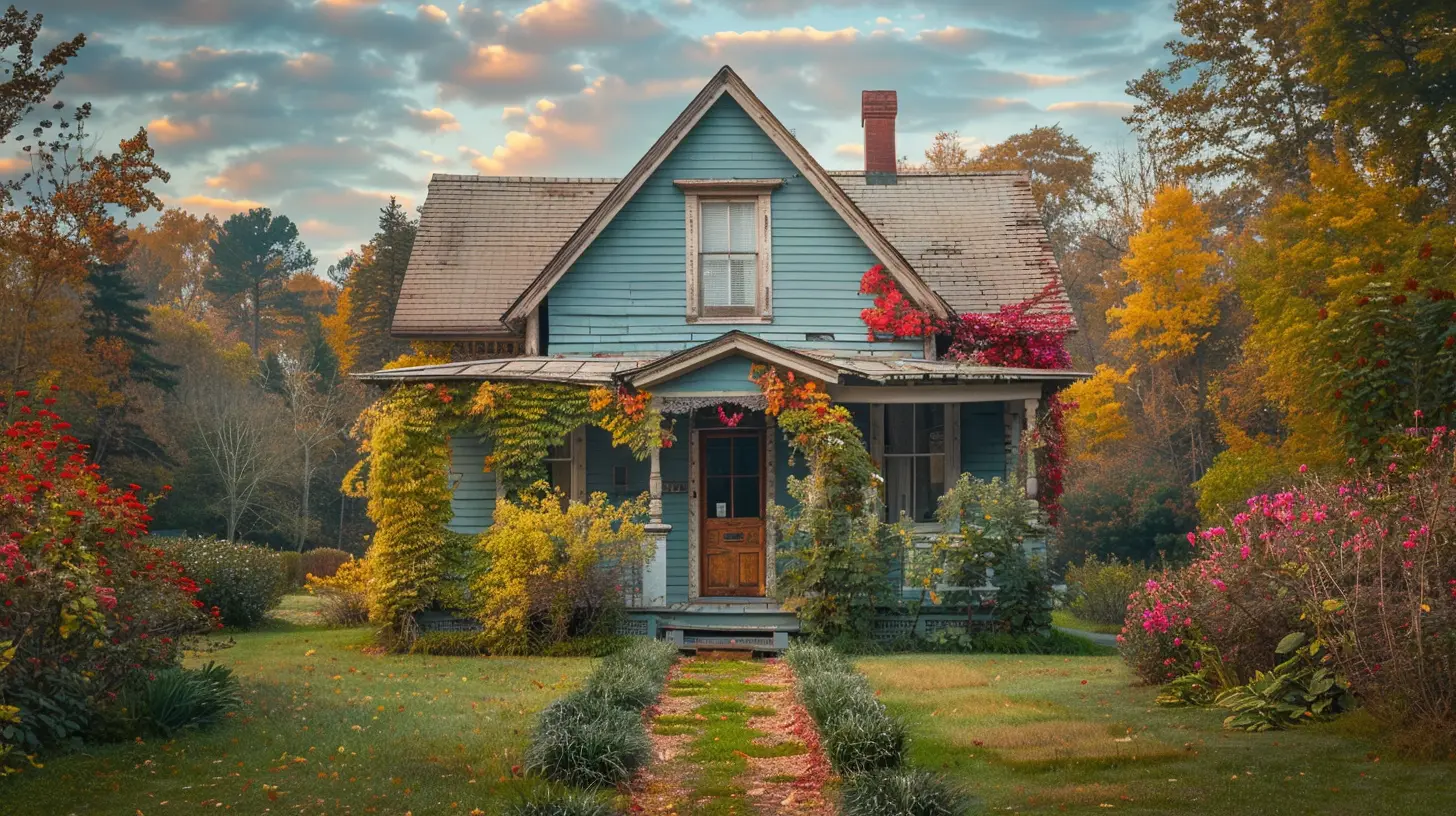
What Makes a Home "Historic"?
First off, it's important to clarify what qualifies as a historic home. Not every old house falls under this umbrella. To officially be considered "historic," a home typically needs to meet certain criteria, like being at least 50 years old, retaining its original architectural integrity, or holding some cultural, historical, or architectural significance. In some cases, it might even be listed on a national or local historic register.Why does this matter? Because once your home is designated as historic, there may be rules, regulations, or benefits that come into play that can impact the selling process.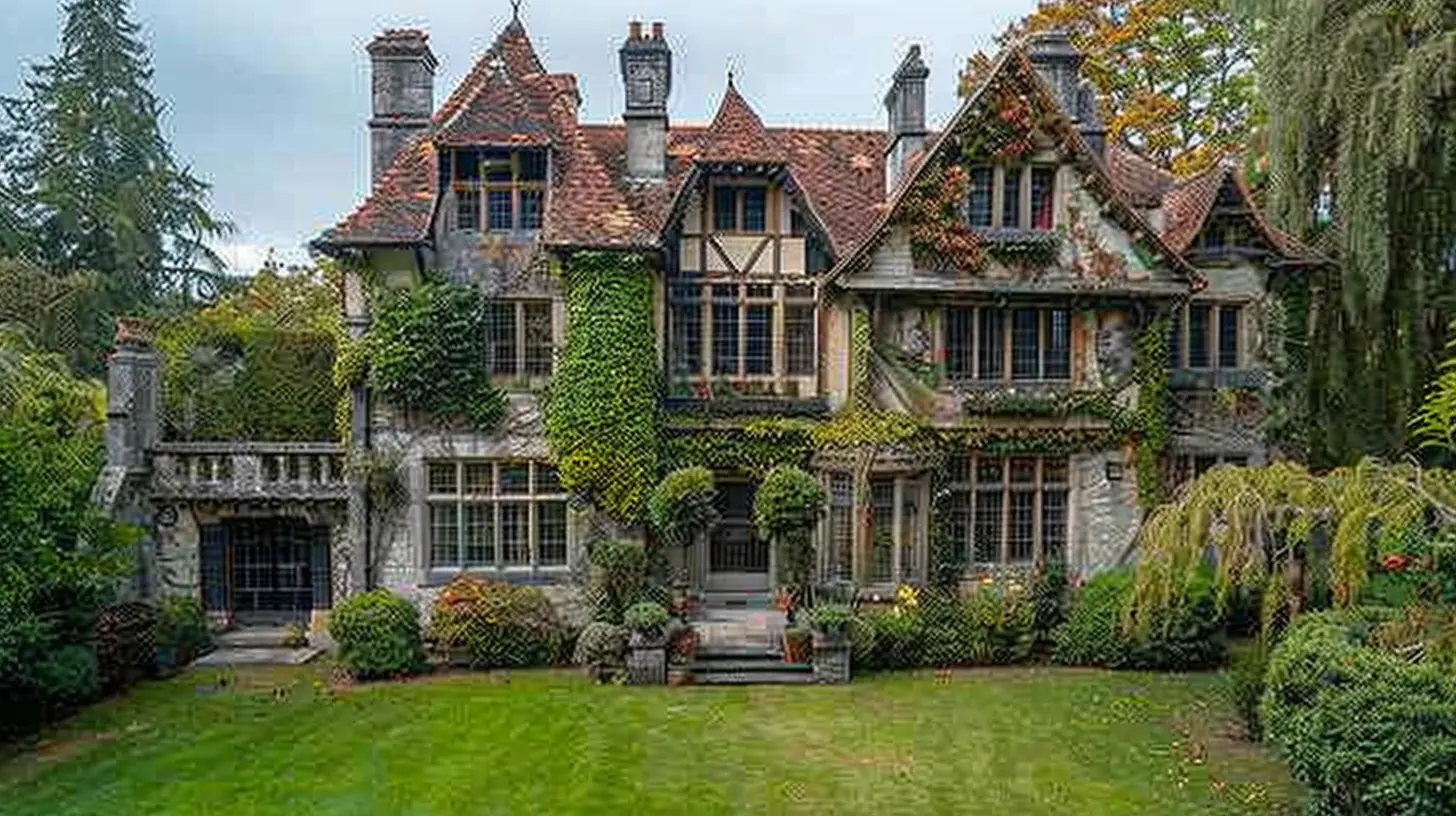
Unique Challenges of Selling a Historic Home
1. Rules, Restrictions, and Red Tape
One of the most common hurdles with historic homes is the preservation guidelines. Many historic properties are protected by local ordinances or are part of historic districts. While these rules are designed to maintain the home’s historical charm, they can feel a bit restrictive. Buyers may be hesitant when they learn they can't install modern windows or paint the house whatever color they wish.For sellers, it means more education and transparency. You’ll need to be upfront about any preservation restrictions or regulations so potential buyers fully understand what they’re getting into.
2. Specialized Maintenance Costs
Let’s be honest: historic homes can be pricey to maintain. From repairing original hardwood floors to updating an ancient plumbing system, the charm of “old-world craftsmanship” often comes with a matching price tag. A buyer might look at your home and see dollar signs in terms of upkeep, so it’s crucial to present any recent updates or routine maintenance you’ve done to counter those concerns.Think of it this way: Selling a historic home is like selling a classic car. Buyers want to know the engine runs smoothly, not just that the paint job looks fantastic.
3. Niche Buyer Market
Unlike modern homes, which appeal to a broad audience, historic properties often attract a niche market. Buyers interested in history, architecture, or preservation will likely be your main audience. That means it might take a bit longer to find the perfect match, and your marketing approach may need to be more targeted.If you’re working with a real estate agent, be sure they have experience with historic homes or, better yet, specialize in them. They’ll know what features to highlight and where to find the right buyers.
4. Appraisal Challenges
Determining the value of a historic home can be tricky. While historic features like original molding or stained-glass windows may seem priceless to some, an appraiser has to tie them to market value. Plus, there’s often a fine line between what makes a home “charming” and what makes it “dated.” If nearby comparables are limited, appraisers may have a harder time assigning a fair value to your property.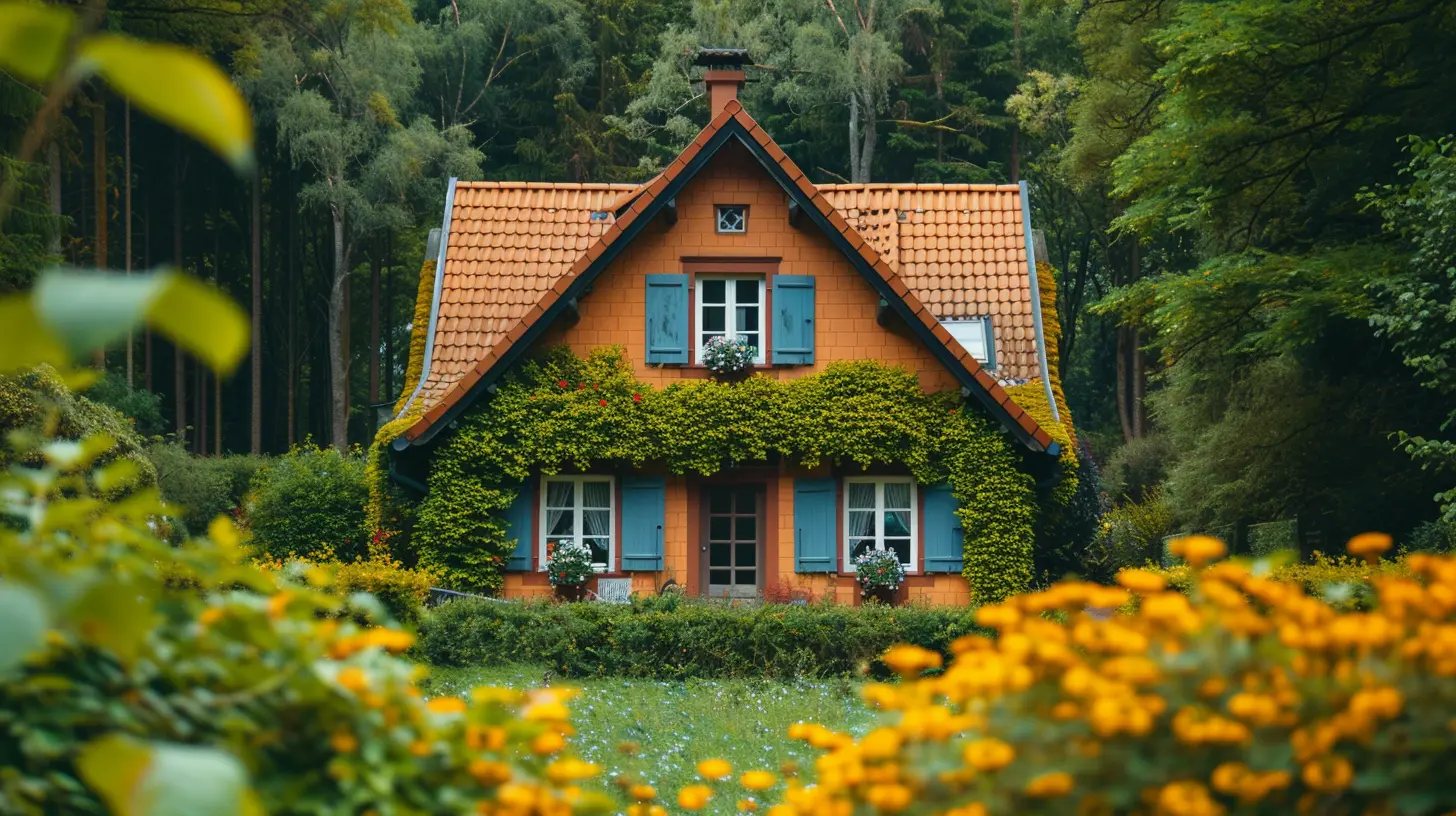
The Sweet Side: Why Selling a Historic Home Can Be a Win
Now, it's not all uphill battles. Selling a historic home comes with some pretty significant perks, too. Let’s look at what makes these properties so desirable.1. Unmatched Character and Charm
Let’s face it—most modern homes can’t hold a candle to the character of a historic one. From intricate crown moldings to hand-carved staircases and original fireplaces, these homes have unique features that are tough to find anywhere else. Buyers looking for something beyond cookie-cutter designs will find historic homes irresistible.It’s like comparing a mass-produced piece of furniture to a one-of-a-kind antique. The craftsmanship and personality make all the difference.
2. Storytelling Appeal
Every historic home has a story, and buyers love a good story. Maybe your home was designed by a renowned architect, or perhaps it housed a notable figure or witnessed a moment in history. These nuggets of history add a sense of prestige and allure, making your property stand out from the crowd.When selling, don’t be shy about playing up the home's backstory. Include it in your listing description, marketing materials, or even as part of the final walkthrough.
3. Tax Incentives and Grants
In some areas, owning a historic property comes with financial perks. There may be local or federal tax credits available for restoration work or grants to preserve historic properties. Of course, these benefits often transfer to the buyer, making the home even more appealing.Be sure to highlight any potential savings or incentives, as they may offset the perceived higher costs of owning a historic property.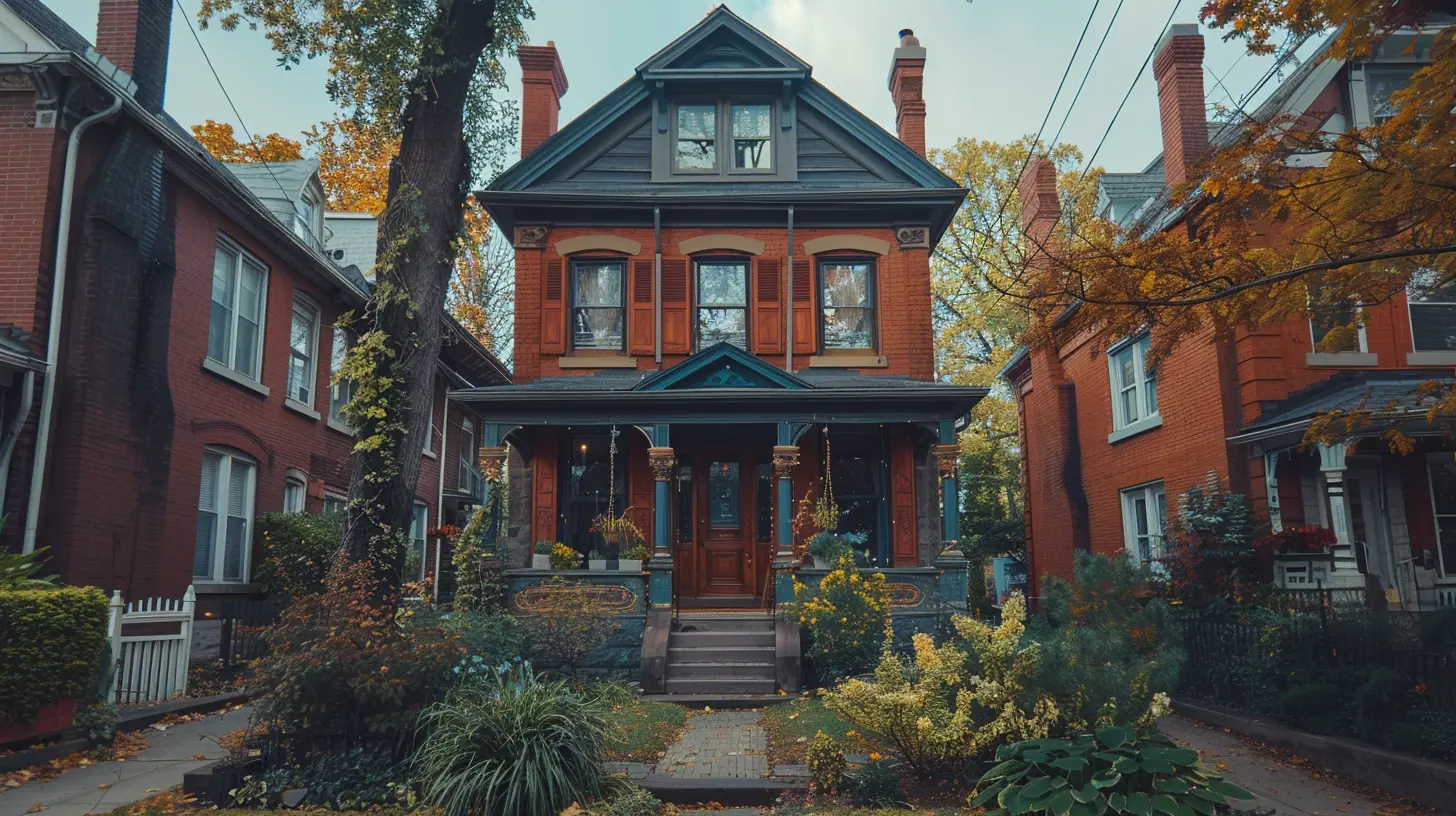
How to Market a Historic Home Effectively
Selling a historic home requires more than your standard real estate marketing approach. Here are some tips to make your property shine:1. Highlight Unique Features
Is there original woodwork, a clawfoot tub, or stained glass windows? Showcase these features! Include high-quality photos and, if possible, use videos or virtual tours to highlight the character of the home.2. Tap Into Emotional Appeal
Historic homes often resonate on an emotional level. Focus your listing on the lifestyle and history your home offers—describe what it feels like to have breakfast in that sunny nook or imagine hosting dinner parties in a dining room with a century-old chandelier.3. Target the Right Audience
Think about who your ideal buyer is. Are they history buffs? Architecture enthusiasts? Eco-conscious buyers who love the idea of reusing rather than building new? Tailor your marketing efforts to reach those specific groups.4. Partner With Preservation Organizations
Consider working with local preservation societies or heritage organizations to help promote your property. They often have networks or events that can put your home in front of the perfect audience.Tips for Sellers: Setting Yourself Up for Success
If you’re ready to list your historic home, here are a few final tips to make the process smoother:- Get a Pre-Listing Inspection: This can help identify any potential issues that might scare off buyers and give you time to address them.
- Provide Documentation: Gather any restoration records, blueprints, or documentation of your home’s history—buyers love having these details.
- Be Realistic About Pricing: While historic homes are special, not everyone will see their full value. Strike a balance between sentimental worth and market reality.
- Be Honest: If the home needs work, don’t sugarcoat it. Be upfront about what buyers can expect.
The Bottom Line
Selling a historic home is certainly a unique journey, filled with both challenges and rewards. While it might take a little extra effort to market and educate buyers, the payoff can be well worth it. After all, you’re not just selling a structure—you’re passing on a piece of history. By being transparent, emphasizing the home's character, and targeting the right audience, you can ensure your historic home ends up in the hands of someone who will treasure it just as much as you have.all images in this post were generated using AI tools
Category:
Sellers GuideAuthor:

Vincent Clayton
Discussion
rate this article
19 comments
Alisha Carrillo
Historic homes: because who doesn’t love a good ghost story?
March 30, 2025 at 4:16 AM

Vincent Clayton
Absolutely! The charm of historic homes often comes with intriguing tales that can captivate buyers and spark their imagination.
Megan McGovern
Old homes: where charm meets quirky surprises!
March 23, 2025 at 8:59 PM

Vincent Clayton
Absolutely! Historic homes offer a unique blend of character and unexpected features that can truly captivate buyers.
Dior Hernandez
Selling a historic home can be a delightful adventure! Embrace its charm and quirks while highlighting its unique story. With the right approach, you’ll attract buyers who appreciate the magic of history. Happy selling!
February 11, 2025 at 7:56 PM

Vincent Clayton
Thank you for your insightful comment! Embracing the charm and story of a historic home truly enhances its appeal to potential buyers. Happy selling indeed!
Finn McKeever
In timeless walls, stories linger—challenges arise, yet history's charm weaves an enchanting sale.
February 2, 2025 at 9:10 PM

Vincent Clayton
Thank you! Indeed, the rich history of a historic home can create both unique challenges and captivating opportunities for potential buyers.
Alanna Adams
Embrace the charm! Historic homes offer character and stories that buyers love!
January 31, 2025 at 5:17 AM

Vincent Clayton
Absolutely! Historic homes indeed have a unique allure, rich with character and stories that resonate with buyers. Embracing their charm can enhance their market appeal.
Idris Fuller
Charm meets challenge—history sells, but at a cost!
January 27, 2025 at 1:37 PM

Vincent Clayton
Absolutely! Balancing the charm of a historic home with the challenges of selling it definitely requires careful consideration and expertise.
Tala Spencer
Great article! Selling a historic home indeed comes with its own set of challenges and rewards. It's heartening to see the appreciation for these unique properties. With the right approach, sellers can find the perfect buyers who will cherish their home's story!
January 23, 2025 at 12:36 PM

Vincent Clayton
Thank you! I'm glad you enjoyed the article. Selling historic homes truly requires a special touch, and it's rewarding to connect them with buyers who value their unique stories.
Etta McIntire
Selling a historic home presents intricate challenges, from preservation regulations to market appeal. However, the allure of unique architecture and rich stories can attract discerning buyers, making it a potentially rewarding venture for sellers.
January 18, 2025 at 9:05 PM

Vincent Clayton
Absolutely! Selling a historic home comes with its challenges, but the distinctive charm and rich narratives can truly captivate the right buyers, making the effort worthwhile.
Riven McDaniel
What a fantastic read! Selling a historic home truly combines the charm of the past with modern market challenges. Embracing its unique qualities can make all the difference for potential buyers!
January 16, 2025 at 4:47 AM

Vincent Clayton
Thank you! I'm glad you enjoyed the article. Emphasizing the home's unique charm is key to attracting buyers!
Azura Gray
Embrace the charm of history!
January 14, 2025 at 8:58 PM

Vincent Clayton
Absolutely! Embracing history adds character and depth, making each home a unique story waiting to be told.
Dolores Gomez
Great insights! Historic homes truly offer charm.
January 13, 2025 at 11:56 AM

Vincent Clayton
Thank you! I'm glad you enjoyed the article. Historic homes definitely have a special allure!
Zacharias Lawrence
Selling a historic home? It's like dating a timeless classic—full of quirks but oh-so-charming! Embrace the adventure and let those character flaws shine!
January 12, 2025 at 1:40 PM

Vincent Clayton
Absolutely! Selling a historic home is indeed about appreciating its unique charm and quirks, turning perceived flaws into delightful features for potential buyers.
Lisa Love
This article expertly highlights the unique challenges and benefits of selling a historic home. It’s essential to balance preservation with modern buyer expectations. The insights on navigating historical regulations and marketing the home's unique character provide valuable guidance for homeowners looking to sell their historic properties successfully. Great read!
January 12, 2025 at 4:46 AM

Vincent Clayton
Thank you for your thoughtful feedback! I'm glad you found the insights on balancing preservation with modern expectations helpful.
Sara Vasquez
What a delightful read! Selling a historic home comes with its quirks, but the charm and character make every challenge worth it. Here’s to celebrating our beautiful heritage! 🏡✨
January 11, 2025 at 9:44 PM

Vincent Clayton
Thank you! I'm glad you enjoyed it. Celebrating our heritage truly makes the journey worthwhile! 🏡✨
Anika McWain
Selling a historic home brings both distinct challenges and invaluable benefits. Embrace the character and charm while addressing preservation concerns. With the right strategy, these unique properties can captivate buyers and command premium prices.
January 11, 2025 at 4:24 AM

Vincent Clayton
Thank you for your insightful comment! Balancing preservation with marketing is key to showcasing a historic home's unique charm and maximizing its value.
Serenity Taylor
What a delightful read! Selling a historic home is like sharing a piece of art with the world. Those unique quirks and timeless charm make each property special. Embracing the challenges only adds to the adventure. Here’s to a successful journey ahead! 🎉🏡
January 10, 2025 at 9:59 PM

Vincent Clayton
Thank you for your kind words! I couldn't agree more—every historic home truly tells a story and adds character to the journey of selling. Cheers to embracing the adventure! 🎉🏡
Rosalyn Huffman
Selling a historic home requires embracing its unique charm while addressing modern buyer expectations. Highlighting its rich history can attract the right buyer who appreciates its timeless value.
January 10, 2025 at 12:27 PM

Vincent Clayton
Absolutely! Balancing historic charm with modern expectations is key to attracting buyers who value both the home's unique story and contemporary living.
Beatrice Parker
Great insights on the unique challenges and benefits of selling historic homes! It's fascinating how their rich stories and architectural beauty can attract buyers, despite the complexities involved. Thank you for shedding light on this important topic for homeowners and real estate professionals alike!
January 10, 2025 at 5:19 AM

Vincent Clayton
Thank you for your thoughtful comment! I'm glad you found the insights valuable. Historic homes truly have a unique charm that captivates buyers!
Caitlin Thompson
Great insights! Navigating the challenges of selling historic homes can be rewarding for both sellers and buyers.
January 9, 2025 at 11:55 AM

Vincent Clayton
Thank you! I’m glad you found the insights valuable. Selling historic homes truly offers unique rewards for everyone involved.
MORE POSTS

Essential Infrastructure Considerations When Buying Rural Land

Family-Friendly Features to Look for in a Suburban Home

Suburban Homes: Understanding Property Taxes and Local Schools

How to Leverage Equity in Real Estate for Maximum Profit

How to Highlight Architectural Features Through Photography
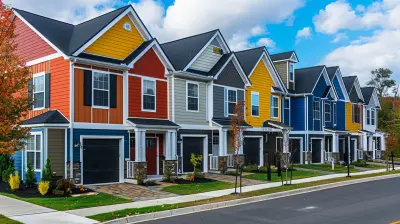
The Role of Government Grants in Producing More Affordable Housing

Reverse Mortgages and Property Taxes: What You Need to Know

Advantages of Investing in Industrial Real Estate

Important Legal Issues to Keep in Mind When Leasing Office Space
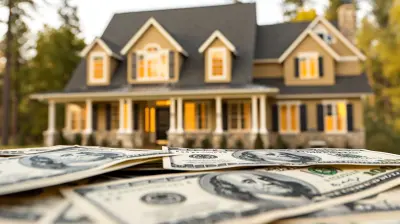
Debunking Common Myths About the Buyer’s Market

Key Documents You Need When Selling Your Property

Affordable Housing and Its Role in Alleviating Homelessness